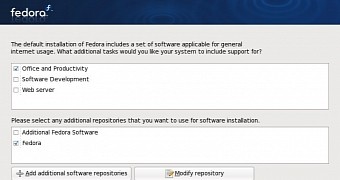It has been recently brought to our attention that the text-mode and graphical installer used in the well-known Red Hat Enterprise Linux and Fedora Linux operating systems will be soon ported to the Python 3 programming language.
Vratislav Podzimek, a Fedora and Linux enthusiast, and Software Engineer at Red Hat, wrote an interesting article on his blog about the steps that are needed to be taken in order to successfully port the Anaconda installer to Python 3.
For those of you who are not in the loop, Anaconda is the name of the OS installer used in both Red Hat Enterprise Linux and Fedora distributions, as well as in any other Linux kernel-based operating system derived from them.
As you might have guessed, Anaconda is written in the Python 2 programming language, which will soon be deprecated in most if not all GNU/Linux distributions. As such, the Anaconda developers and maintainers need to port it to Python 3 immediately.
"For the reasons described above the Red Hat’s Installer team as the group of Anaconda’s developers and maintainers decided to make all their libraries Python 2/3 compatible and to move Anaconda to Python 3," says Vratislav Podzimek.
Fedora 23 will ship with Python 3 by default
Python 3 will be the default Python implementation in the upcoming Fedora 23 operating system, due for release sometime around November 2015. Until then, the Red Hat Installer team has a lot of work before them to port Anaconda to Python 3 but also keep it backwards compatible with Python 2.
We also remind you that the soon-to-be-released Fedora 22 Linux distribution has switched to a new default package manager called DNF and written in Python 3, which replaces the old-school YUM software. Therefore, the Anaconda installer will also use DNF when it switches to Python 3.
Anaconda is being known as the biggest and most complex piece of software written in the Python dynamic programming language, which means that there will be a lot of work porting it to Python 3 and still keeping it compatible with Python 2, so the Red Hat installer team needs your help to test the code and report bugs.

 14 DAY TRIAL //
14 DAY TRIAL //